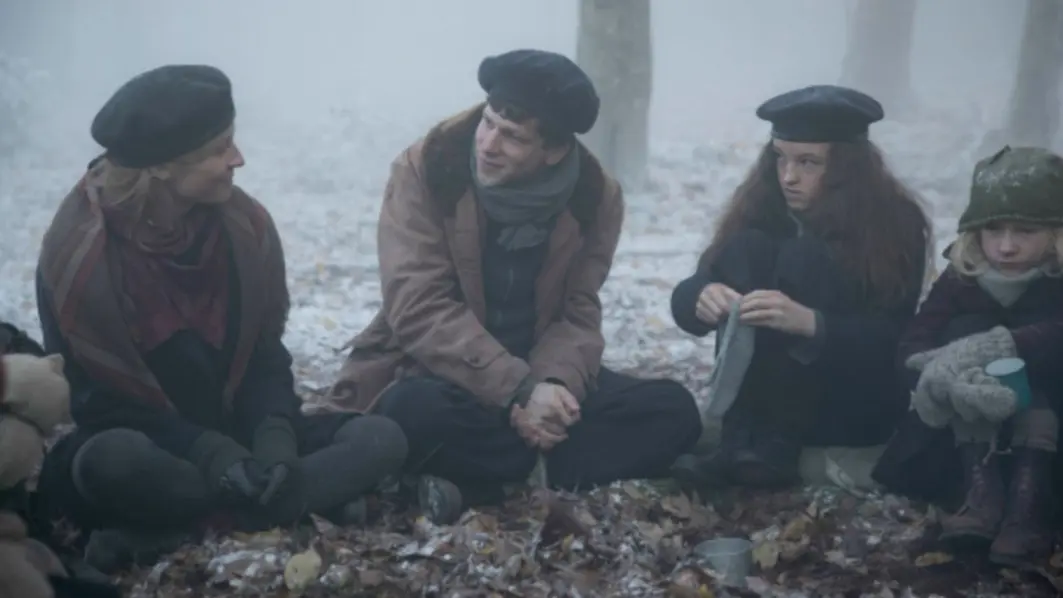Summary
Jesse Eisenberg is very good in Resistance, but ultimately the film is a reminder that a Mime is a terrible thing to waste.
Resistance is so frustratingly formulaic it draws comparisons to last year’s criminally overrated stinker, Harriet. While not nearly as ridiculous as that film’s inane script and soap opera quality cinematography, Jonathan Jakubowicz’s film has been moving genre parts that don’t necessarily work the way they should. It unsuccessfully attempts to balance legendary performance artist Marcel Marceau’s start as a young actor to a critical member of the French resistance trying to drive out the Nazi presence in France. Unfortunately, the film already boxed itself in when it eventually does hit its stride and main focus.
Jesse Eisenberg (The Art of Self-Defense) plays Marcel Mangel, before he was Marcel Marceau, a butcher’s son, trying to be the next Charlie Chaplin in his free time and break away from his father’s business. He finds himself caught up in a group of young revolutionaries; he is determined to take on the Nazis and its ruthless leader, Klaus Barbie (Matthias Schweighöfer), a Gestapo agent in charge of cleansing the country of its enemies. While fighting the German presence, Mangel, his girlfriend Emma (Clémence Poésy), and his cousin Georges (To Dust’s Géza Röhrig) start to help smuggle Jewish orphans across the French border and into Switzerland to escape certain death.
Director Jonathan Jakubowicz’s film is a biographical drama that is a victim of its ambition and turns into a formula film to get its script out of its predicament. The film has elements that work — for instance, the opening and closing scenes of Ed Harris playing General George Patton introducing Marceau to entertain his troops have added weight and are historically accurate. By the time the film gets there, his art brings more profound meaning and comes from having to stay silent publicly and remain silent to avoid the Nazi troops.

When the film doesn’t work, it attempts to create multiple composite characters to create romance and melodrama when the real story is enough to be interesting. The script should have focused more time on Marceau’s preparation before his performance and after. If Eisenberg could have shown a profound reflection on the journey and used his memory to tell the tale through flashbacks, it would have brought the film a better structure, removed its disjointed narrative, and spent less time on his previous acting career.
Resistance does begin to create a decent amount of suspense when it plans its first attack and when attempting to sneak its orphans away. The real credit should be given to Eisenberg, who is very good here, whether it’s entertaining his kids like Guido Orefice in Life is Beautiful, leading them through snow-covered mountains to a better life, like Marie von Trapp in The Sound of Music, that brings honor to an artist who was an extraordinary hero who influenced his field through his heroism.
Ultimately, Resistance is a film that attempts to honor a man with a back story many people today have forgotten or know nothing about. It didn’t have to create melodrama to sell the viewer the power of its account or use it to tell a story about three real-life people (Marceau, Barbie, Longier). It’s recommendable to the point of wanting viewers to watch to see Eisenberg’s turn that honors a man’s heroism but ultimately fumbles away a chance to tell it the right way, including how the events transformed his performance art.
It’s a shame because a Mime is a terrible thing to waste — especially the heroic one.



